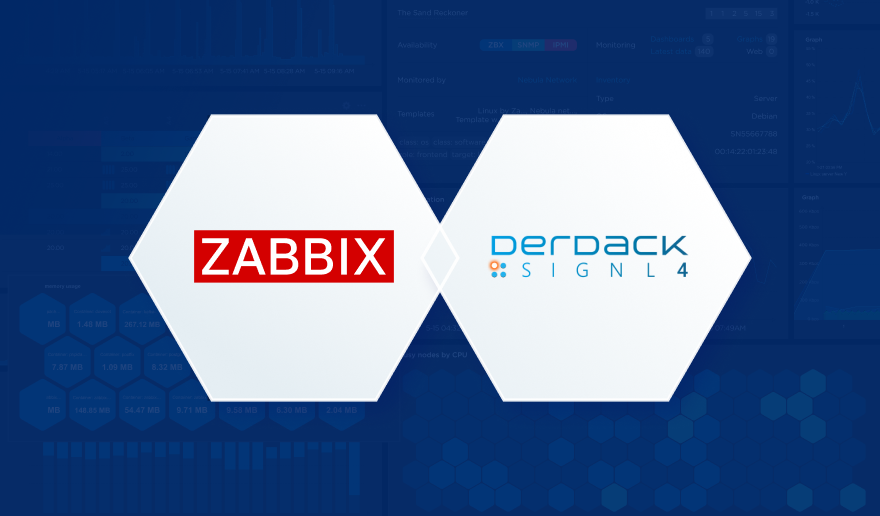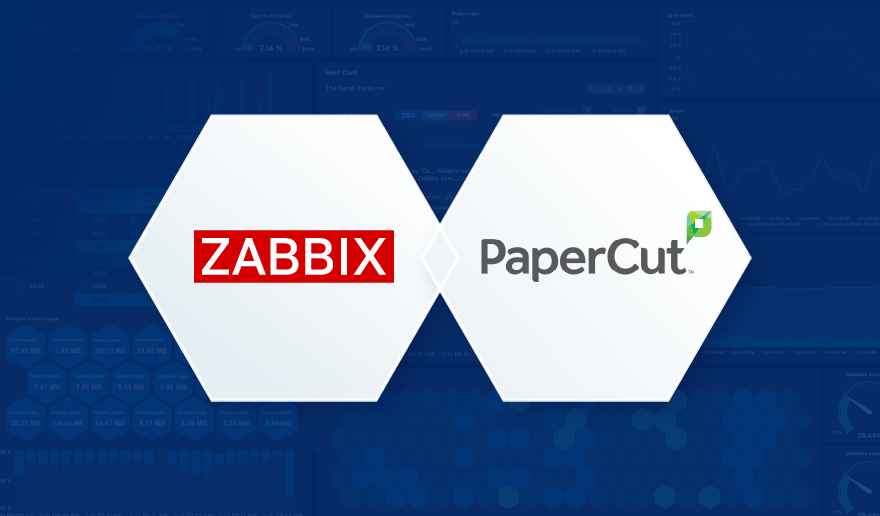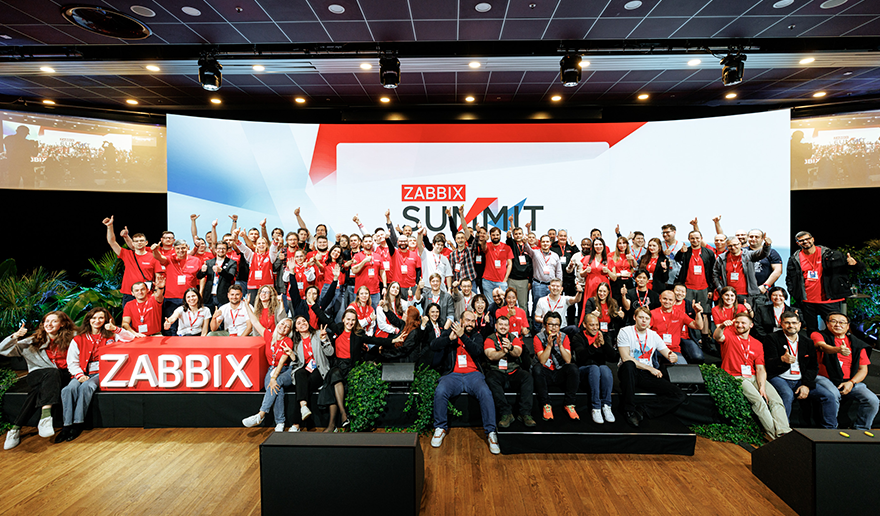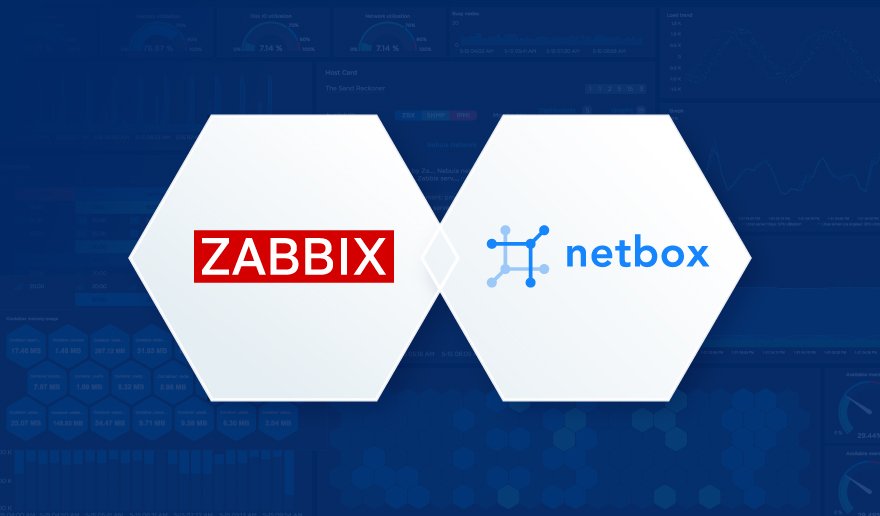Zabbix 6.0 LTS comes packed with many new integrations and templates. As the total number of templates and integrations grows, we plan to make major improvements to our template repository. This will greatly improve the workflow of developing a new community template, submitting template pull requests, following the development process of a template, and much more.
The full recording of the speech is available on the official Zabbix Youtube channel.
Table of Contents
What are integrations?
By definition, integrations are connections between systems and applications that work together as a whole to share information and data. In Zabbix, we separate integrations into two types:
- Out-of-the-box templates
- Templates contain items, triggers, graphs, and other entities that allow you to monitor any device, service, application, and other monitoring endpoints.
- Webhook integrations
- Webhooks allow you to send the information from Zabbix to any sort of 3rd party system like ITSM or messaging applications.
Where to find the latest integrations?
If you’re installing a fresh Zabbix instance, it will come pre-packaged with the latest set of official templates and webhooks. If you wish to download and import the integrations manually, you can find them in:
- The Zabbix integrations page – https://zabbix.com/integrations
- The templates folder of the Zabbix git page – https://git.zabbix.com
How do you benefit from integrations?
What are the benefits of using the official Zabbix integrations for you as a Zabbix user?
- Monitor your endpoints in a tested and optimized manner
- Monitor a large variety of 3rd party systems
- Official templates come with a guarantee of quality and official support
- Official templates provide quick deployment of monitoring logic for your monitoring endpoints
Having supported integrations can also be important from the standpoint of a vendor. Having an official Zabbix integration can provide multiple benefits for vendors:
- Supported vendors get the ability to engage the Zabbix community
- Collaborate with Zabbix and receive additional recognition
- Provide higher quality monitoring support by collaborating in the development of the integration
- Set higher monitoring standards for your product
- Improve your public image
What if I wish to request a new official integration?
There are multiple ways how you can approach a scenario when there is no official integration for a specific product:
- Option 1:
- Create a ZBXNEXT ticket with your request at support.zabbix.com
- Ask your friends and colleagues to vote on a request
- If there is community interest in the integration – we will develop it!
- Option 2:
- Contact [email protected] with your request, and Zabbix can develop a unique template just for you as a part of our integration services
- Option 3:
- Look for an unofficial community template
How are the official Zabbix integrations made?
Our first step in developing a new template is prioritizing which template should we tackle first. This includes looking at the current IT landscape and deciding which of the components are vastly considered as Essential services. Then, we look at the community requests and the number of votes behind each request. We also continuously work on improving the existing templates and evaluating the priority of the requested improvements. There is also the option to sponsor an integration by contacting our Sales department.
After we prioritize our list, we proceed to development – we do research, talk to community experts, create focus groups and proceed with the development. Once the development is finished, we proceed with validation – this includes internal reviews from the Integrations team as well as giving our colleagues from the Support team the chance to take a look at the newly developed template. Community feedback is also important for us – the feedback regarding the template can be left either in the comments under the specific feature request or in our Suggestions and Feedback forum section.
Community templates
While we pride ourselves on the rapid growth of our integrations team and the pace at which we have been delivering new official templates and integrations, we, of course, can’t instantly develop a template for every vendor and device out there. This is where our community has been of great help to us.
Moving from share.zabbix.com
Previously, if you were to find Zabbix lacking a template or an integration that you require, you would visit share.zabbix.com and look for a community solution to your problem. At this point, we have decided to migrate away from share.zabbix.com since, over the years, we have found it lacking in multiple aspects:
- The website was hard to navigate
- The underlying platform was outdated
- Once uploaded, the templates were rarely maintained
- It was hard to collaborate on templates
- Lacking standardization – each template could use different naming conventions or metric collection approaches
- Zombie templates – templates developed for old versions but never updated along the way.
Community template repository
The new go-to place for community templates will be our Community template repository. The repository will serve as a platform for collaboration. Once uploaded, the templates can be maintained by either the original developer or other community members. The platform will be moderated by the Integrations team, who will also provide feedback on the community templates to ensure a higher quality of the templates and additional validation. The documentation will also be generated for the community templates, containing the contents of each template – this way, you can have a transparent look at the template before downloading it.
The process
Let’s go through the whole process of developing and maintaining a community template.
1. Collaborate
- For existing templates – you can start a discussion on Github issues to discuss issues or potential improvements on the template.
- You can create a new bug report related to the template
- For older community templates – you will be able to take over the maintenance of this template and continue improving it down the line
- Develop and publish a new template or an integration
When it comes to community development, Zabbix does provide an official set of guidelines that the developers can follow to ensure that the template uses the official best practice conventions and approaches:
- Naming conventions for templates and template entities
- A set of best practices helps the community developers to simplify the decision making regarding best template and integration development approaches
- Practical and ethical framework for template and integration development
- This enables the community developers to follow the same set of development guidelines as the official Zabbix Integrations team
2. Pull request
Once you have decided to make a new integration or modify an existing integration, create a pull request describing the proposed changes and be ready to participate in a discussion related to the proposed set of changes. We will review and moderate the discussion and assist you in ensuring a smooth template development process.
3. Validation
The validation process consists of two parts. First, we will review if the template is valid, can be imported in Zabbix, and is usable by our community members. Next, the Integrations team will check if the template is developed according to the Zabbix standard and suggest any necessary changes.
4. Merge
If the validation process has been passed, we will accept the pull request and merge the integration into the repository. Afterward, the readme file for the integration will be generated. Finally, the template will be added to the template directory, and it will be available for everyone to see and download.
The Templates directory will have a similar structure to what you are used to in share.zabbix.com, so you should feel right at home here. We tried to check and migrate each and every valid template, but if you don’t find your template in the list – simply submit a pull request to us, and we will review it.
The generated Readme file will contain a list of entities included in the template – such as User macros, Template linkages, Discovery rules, Items, and more.
Where can I find the repository?
The Zabbix community template repository can be found in https://github.com/zabbix/community-templates. All you need to participate is a Github account and the willingness to participate in the integration development process.
To report an issue with the template repository or the official integrations, feel free to use our support portal: https://support.zabbix.com/
- To report a bug – open a ZBX ticket
- To suggest an improvement – open a ZBXNEXT ticket
For any discussions related to the Zabbix integrations, you can use (but are not limited to) the following channels:
- The official Zabbix forum – https://www.zabbix.com/forum
- The official Zabbix Telegram channel – https://t.me/ZabbixTech
Questions
Q: What is the workflow for our users that wish for Zabbix to develop new integration for a specific product?
A: We’re actively listening to our community. The best way to voice your request is to look for an existing feature request on https://support.zabbix.com/ and vote on it. If there is no such feature request – feel free to create it and vote on it. Thirdly, you can always contact our sales department and use our integration services to have the required template developed for you.
Q: Where can I see which integrations are currently developed or scheduled for the next release?
A: You can track the development process of a template by following the particular feature request in our support portal. You can also take a look at the official Zabbix roadmap and see what features, fixes, and integrations are currently scheduled for the upcoming Zabbix versions.







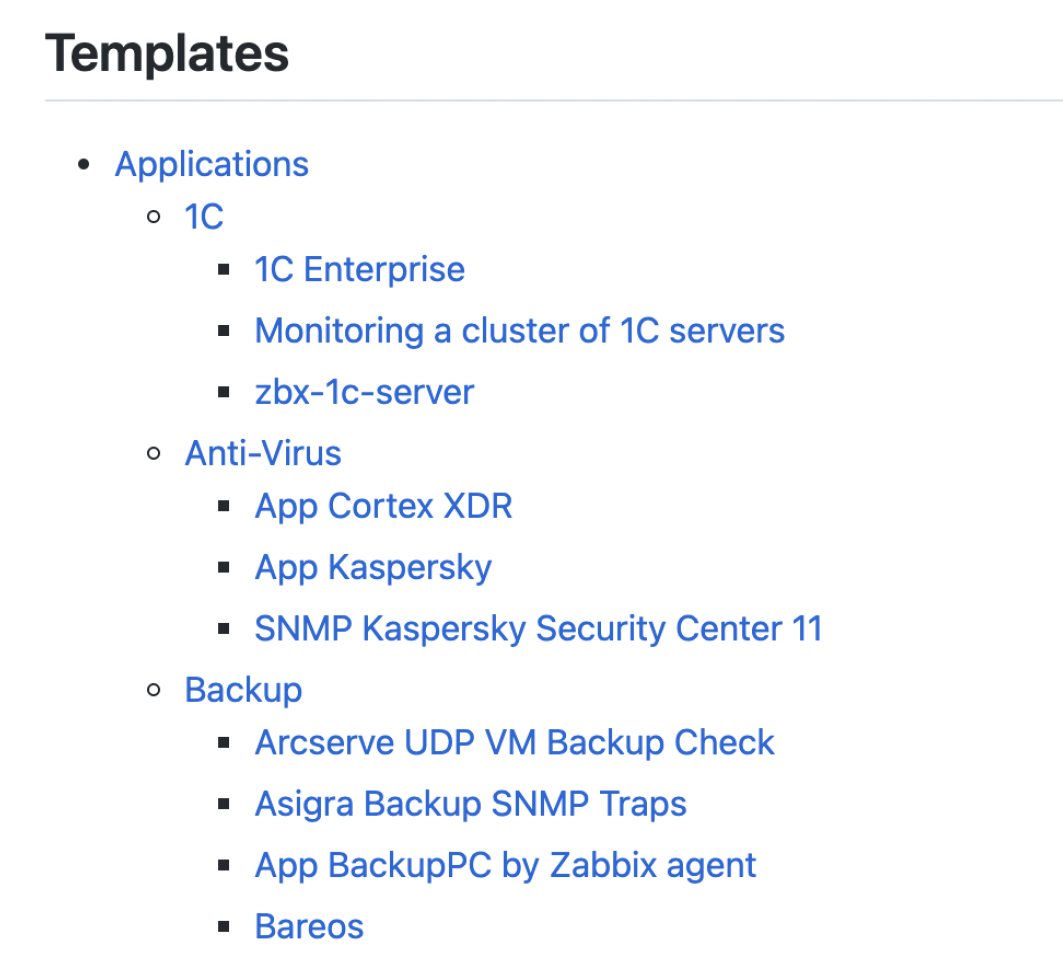

 Prev Post
Prev Post 
